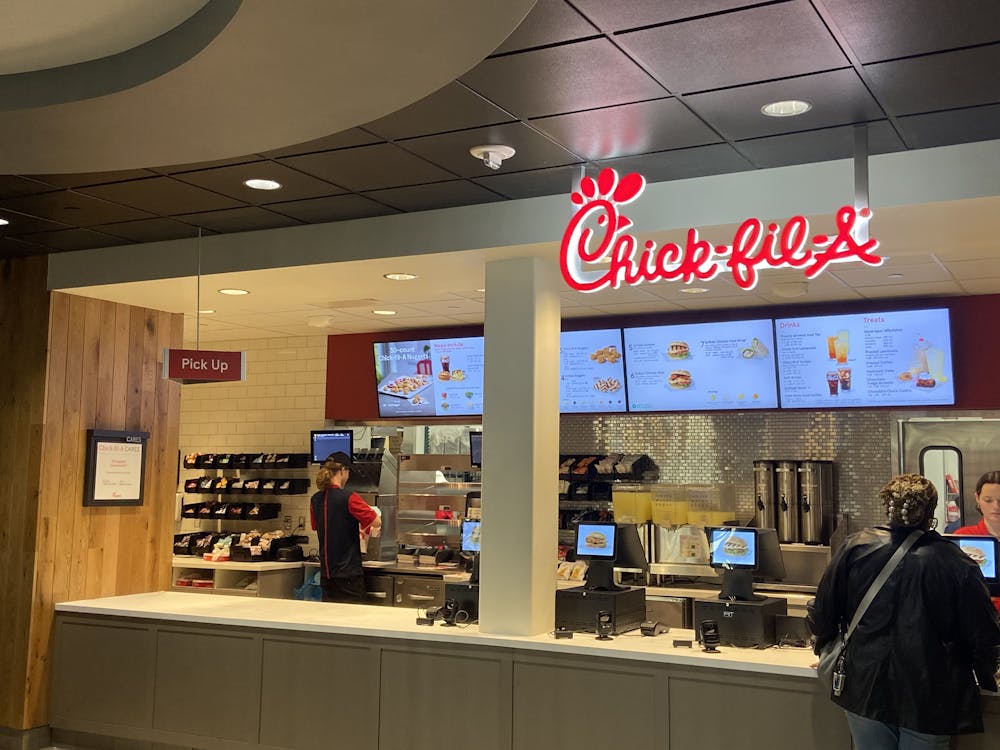Cookies and fruit cups — these are just a few of the items from the LaRita Boren Campus Center that were placed into paper bags without being paid for last semester.
In the past, students were able to load their Chick-fil-A food items into a paper bag, allowing them to check out food without needing to disclose exactly what they were swiping for.
Later in the semester, the University shifted the location of the paper bags to the end of the checkout line, forcing students to show their items before purchase.
Now, the newly renovated Chick-fil-A further minimizes opportunities to steal. While this is not the reason for the Boren updates, the bag incident still begs the question: Does this seemingly insignificant piece of our day really make that big of a difference morally and financially? Surely, it must have little impact on the University’s financial pocket.
But it does.
Those little actions have the power to shape our lives when we give ourselves permission to compromise in “little” areas.
Koert Verhagen, assistant professor of philosophy and religion, said that one’s character can be formed in subtle ways like this.
“I think sometimes people think about their moral decision making as a bunch of individual, isolated instances,” he said. “But there's actually a connection between them. If you have gotten in the habit of justifying dishonesty, it just seems to make sense that that habit will govern other areas of your life when it comes to honesty — whether that's in communication with someone you are friends with or in a relationship with.”
While this issue appears to be insignificant, it is still a matter of integrity and trusting that the Lord will provide.
May Young, associate professor and program director of biblical studies, said it shouldn't be about getting caught; rather, it should be about living before the Lord because He pays obedience forward.
“If we truly believe that God provides for our needs, then we're gonna do what is right, [such as] pay for the things that we need to pay for instead of grabbing things that are not rightfully ours,” Young said.
A part of obedience is trusting that even if a student doesn’t have enough dining dollars or meal swipes, God will provide.
Young also agreed that when you steal in subtle ways, you are forming habits for yourself in the future. God cares how we steward and handle those subtle things in our life, she said.
Moral implications aside, this type of consistent dishonesty actually has the potential to raise student meal plan costs in the long run. The items a student can swipe for in his or her meal plan is already delineated in the cost.
Stephen Olson, vice president for business and finance and Taylor’s chief financial officer, explained that each year the University pays AVI a daily rate. At the beginning of each year, AVI takes on some “risk” that is then accounted for in the amount that the University pays the company.
That “risk” can involve students taking more than they pay for. More risk means more money for the University to pay — causing higher meal plan costs for all students.
“So eventually, somebody is paying for it somewhere,” Olson said. “Somebody is paying the bill. You should pay for your own bill. Not the student next year and not somebody else who we never met, who gets an increased price two years from now.”
The bottom line: that cookie or fruit cup you sneaked into your bag can cause more damage in the long run than you might think.




